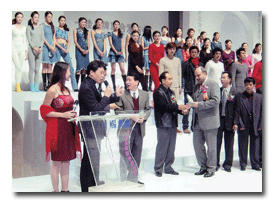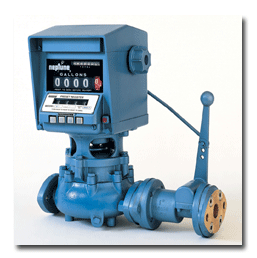T
he retail sales outlook for this quarter is weak and is likely to remain uncertain,
according to a recent report from Gary Rappaport, chairman, International Council of Shopping
Centers. Rappaport contends consumers are backing away from trendy label fashions that sell in
upscale department stores such as Bloomingdales. It seems many high-end designers have seen their
profits hurt by the ongoing problems within this segment of their businesses. Many are selling a
variation of their labels to mass market chains such as Target, JCPenney and Sears.
The goods news for yarn manufacturers is that this ultimately will lead to additional
business and potential new customers. As one spinning executive said, “We are doing business with
customers we would not have even considered six months ago.” A plant manager indicated his company
was taking spindles off commodity-type yarns to fill these niche orders as fast as possible. The
downside is customer expectations for these yarns do not match the pricing. Although cotton and
polyester prices have increased substantially, spinners are not able to pass these increases on to
their customers. As the vice president of one of the largest spinners said, “We are being asked to
produce a premium product at a commodity price.”
Is Iraq The Only Problem?
Federal Reserve Chairman Alan Greenspan seems to think the major problem with our economy
has been the standoff with Iraq. He argues that oil prices have soared more than 60 percent over
the past year. Based on the Consumer Price Index, prices rose by 0.3 percent in January. However,
virtually all of the price increases occurred in the energy sector, while the cost of clothing and
new cars actually fell.
Iraq currently ships two million barrels of oil a day. Members of the Organization of
Petroleum Exporting Countries (OPEC) recently agreed to stick with their current crude oil
production quotas of 24.5 million barrels a day. OPEC did agree to boost output in the future to
keep supplies flowing in case of any disruption of shipments from Iraq. Many observers feel the
actual impact on supplies and prices could be more severe if fighting spreads beyond Iraq to other
areas in the region.
The weaker dollar has helped to narrow the trade deficit by 8.4 percent to $44.9 billion.
Exports of US goods actually increased by 1.6 percent to $81.9 billion in January. Therefore,
Greenspan feels we are on the road to recovery.
Many economists aren’t buying Greenspan’s prediction that the economy will rebound once the
situation with Iraq is resolved. Many point to the fact that consumer confidence fell to a
nine-year low last month. They contend the decline in imports reflects the more cautious mood of US
consumers. Although factory output is up, US factories are running at 75.7 percent of capacity.
Finally, it is hard to disregard the 308,000 jobs lost in February that pushed the unemployment
rate to 5.8 percent.
Greenspan may be right, but don’t bet on it. As one textile CEO said, “There is still a lot
of overcapacity out there, not only in textiles, but in all segments of manufacturing.” Even a
quick outcome in Iraq will leave a lot of uncertainties. Many analysts predict the Fed will cut
interest rates again to prevent the shaky economy from falling back into recession.
Niche Strategies
Investors are betting that companies with brand names, niche products and new business
strategies are beginning to find ways to turn the corner. As one textile CEO said, “The hard times
have taught us some valuable lessons. We are a stronger company now. We have implemented some
strategies out of necessity that should have been followed years ago.”
Foreign competition has been responsible for closing a vast number of firms over the last
few years. This same competition has forced successful firms to examine the way they do business.
These firms recognize they must justify their existence in a global competitive market. Many are
considering moving some production offshore, or at least partnering with foreign firms. They are
discovering that delicate balance between maintaining a domestic manufacturing base and sourcing
finished goods or raw materials from foreign suppliers. These firms are moving away from
commodity-based textiles towards high-tech, value-added product lines.
April 2003






